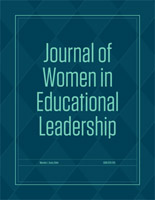Educational Administration, Department of

Journal of Women in Educational Leadership
Date of this Version
4-2008
Document Type
Article
Citation
Journal of Women in Educational Leadership, Vol. 6, No.2-April 2008 ISSN: 1541-6224
Abstract
The most important thing I have learned about leadership development is that it is a continuous process. I recognize that my family, peers, education, job changes, supervisors, and mentors have all influenced how I approach life and how I lead. As a woman of the baby boomer generation, I can celebrate that my peers are some of the first women to win top leadership positions in industry and academia. We have brought forth our own leadership styles and are still learning how to balance work, family, and relaxation. As I reminisced about my career, I recognized that as a new graduate nurse, the informal leaders influenced me more than my supervisors. Working evenings, I had the opportunity to work with and be mentored informally by nurses with a wealth of knowledge. They were seasoned nurses who had the knowledge base, communication skills and political expertise to know how to make sure patients received the care they deserved. I learned that when working the off-shifts, you had the autonomy to make a difference. These nurses also taught me that the most valuable asset members of the healthcare team (including physicians) had was their time. Therefore, I made sure I was organized and succinct in communicating and requesting their assistance when needed. I was able to establish a trusting relationship because of my judiciousness in communicating with other members of the healthcare team. If I called, they knew it was important.


Comments
Copyright © 2008 Pro>Active Publications. Used by permission.